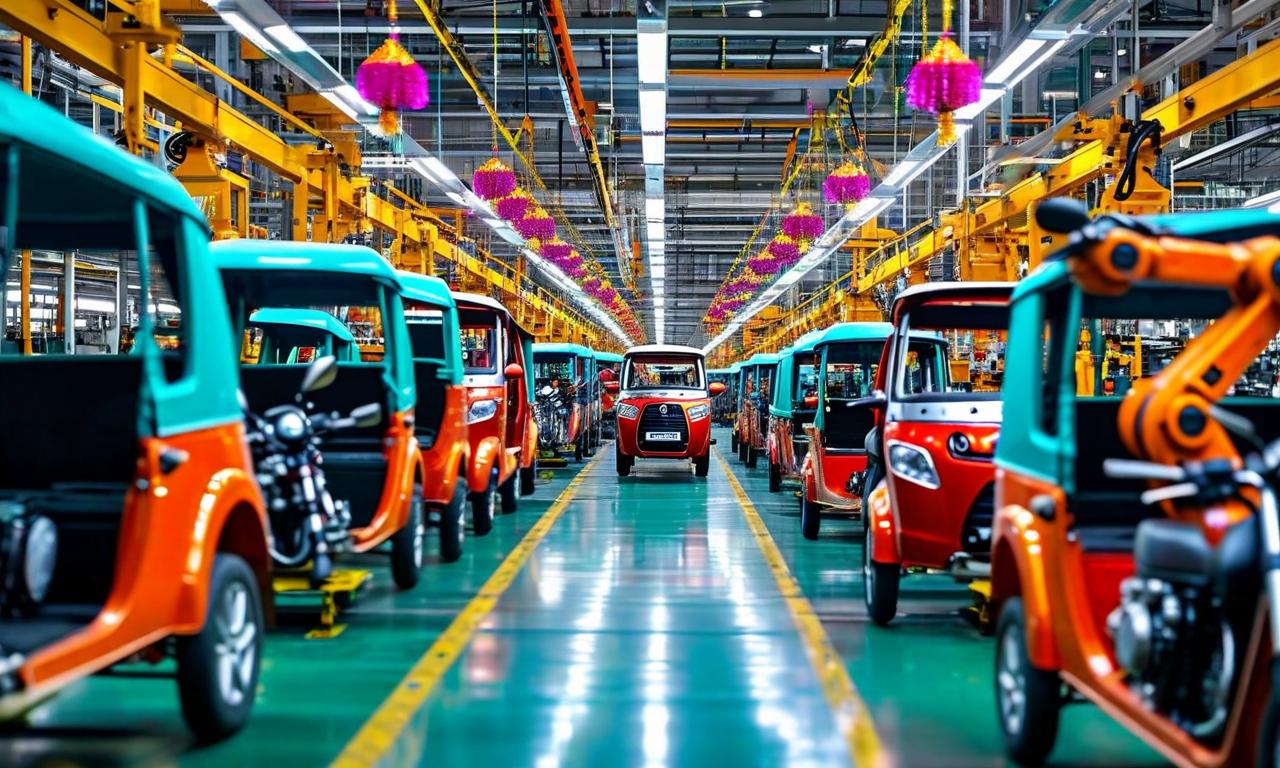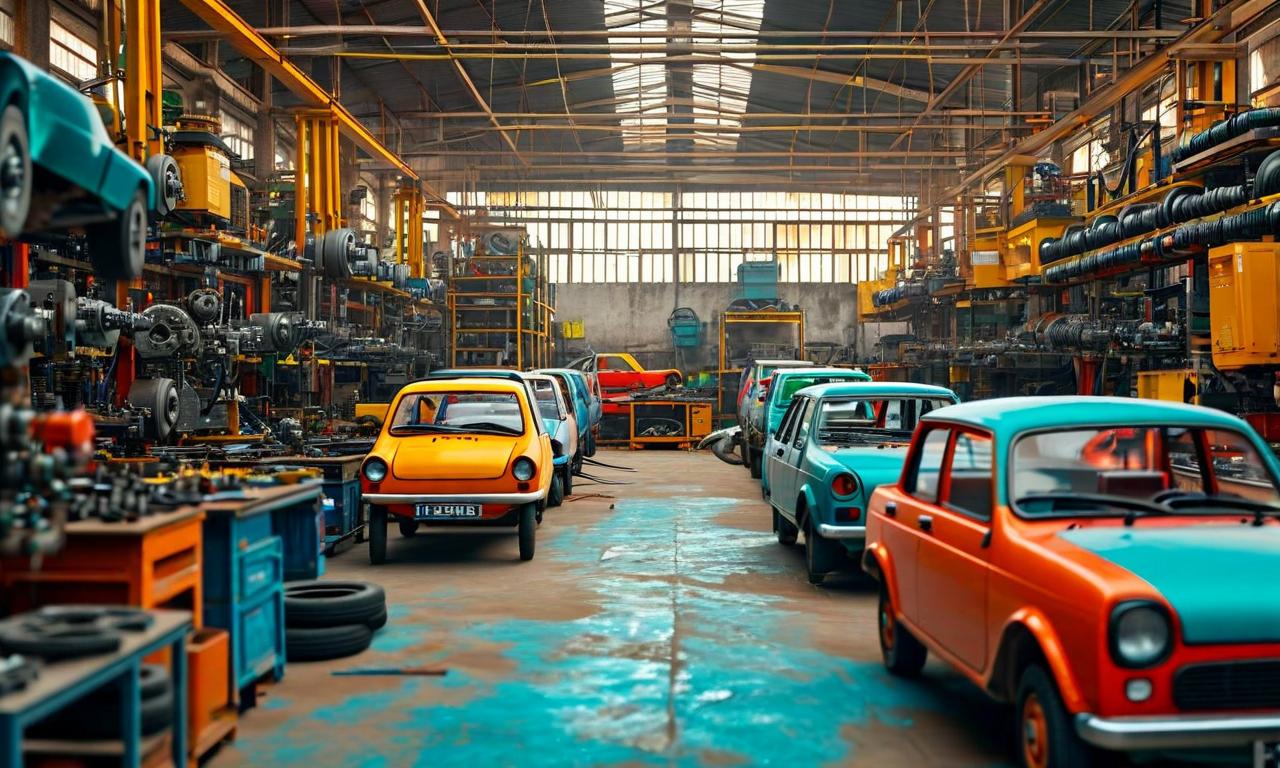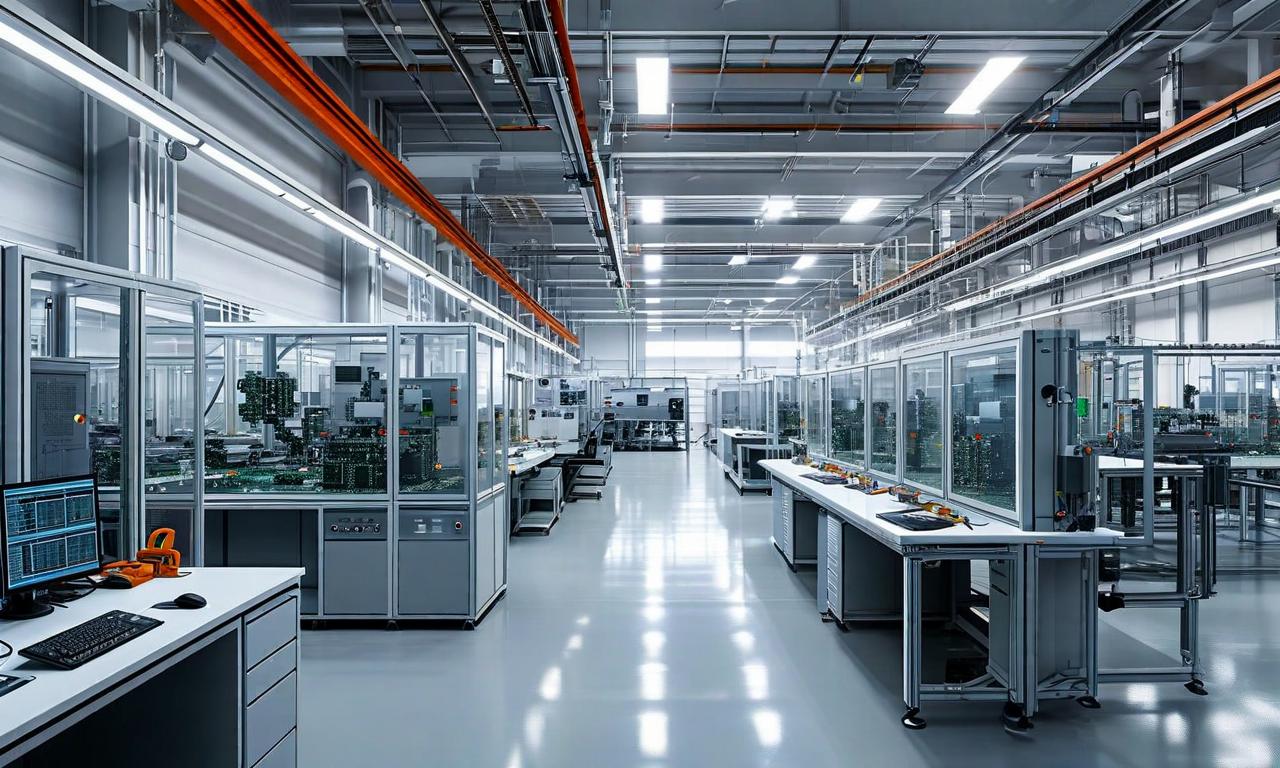Auto Sector Poised for Boost as GST 2.0 Rationalization Expected Before Festive Season
The Indian automotive industry is expecting GST 2.0 rationalization before the festive season, potentially impacting various segments. SUV GST rates may be streamlined to 40% from the current 43-50% range. Other vehicle categories like cars, two-wheelers, and three-wheelers might also benefit from GST rate cuts. The possible removal of cess could further reduce the tax burden. Maruti Suzuki and Mahindra & Mahindra are identified as top picks to potentially benefit from these changes.

*this image is generated using AI for illustrative purposes only.
The Indian automotive industry is bracing for a potential uplift as the government is expected to implement GST 2.0 rationalization before the upcoming festive season. This move could significantly impact various segments of the auto sector, with SUVs likely to see the most notable changes.
Expected GST Changes
According to recent reports, the GST rates for SUVs, which currently range between 43% and 50%, are anticipated to be streamlined under a new 40% rate. This adjustment could lead to a reduction in prices for SUVs, potentially stimulating demand in this popular vehicle segment.
Impact Across Vehicle Categories
While SUVs are expected to be the primary beneficiaries of this tax restructuring, other vehicle categories may also see positive effects:
- Cars
- Two-wheelers
- Three-wheelers
These segments could benefit from GST rate cuts, albeit to a lesser extent compared to SUVs. The exact impact on each category will depend on the final structure of the rationalized GST rates.
Potential Removal of Cess
One of the key aspects of the expected GST rationalization is the potential removal of the cess. If implemented, this would contribute to the overall reduction in tax burden on vehicles, particularly benefiting SUVs. However, the extent of this benefit may vary across different vehicle types.
Industry Outlook
The anticipated GST changes come at a crucial time for the auto industry, with the festive season traditionally being a period of increased vehicle sales. The potential reduction in tax rates could serve as a catalyst for boosting consumer sentiment and driving sales growth across the sector.
Top Picks in the Auto Sector
In light of these expected changes, Motilal Oswal, a prominent financial services company, has identified two top picks in the auto sector:
- Maruti Suzuki
- Mahindra & Mahindra (M&M)
These companies are well-positioned to potentially benefit from the GST rationalization, given their strong presence in various vehicle segments, including SUVs.
Conclusion
As the auto industry awaits the official announcement of the GST 2.0 rationalization, stakeholders remain optimistic about its potential positive impact. The expected changes could provide a much-needed boost to the sector, particularly as it approaches the crucial festive season. However, the full extent of the benefits will only be clear once the government releases the detailed structure of the revised GST rates.






























